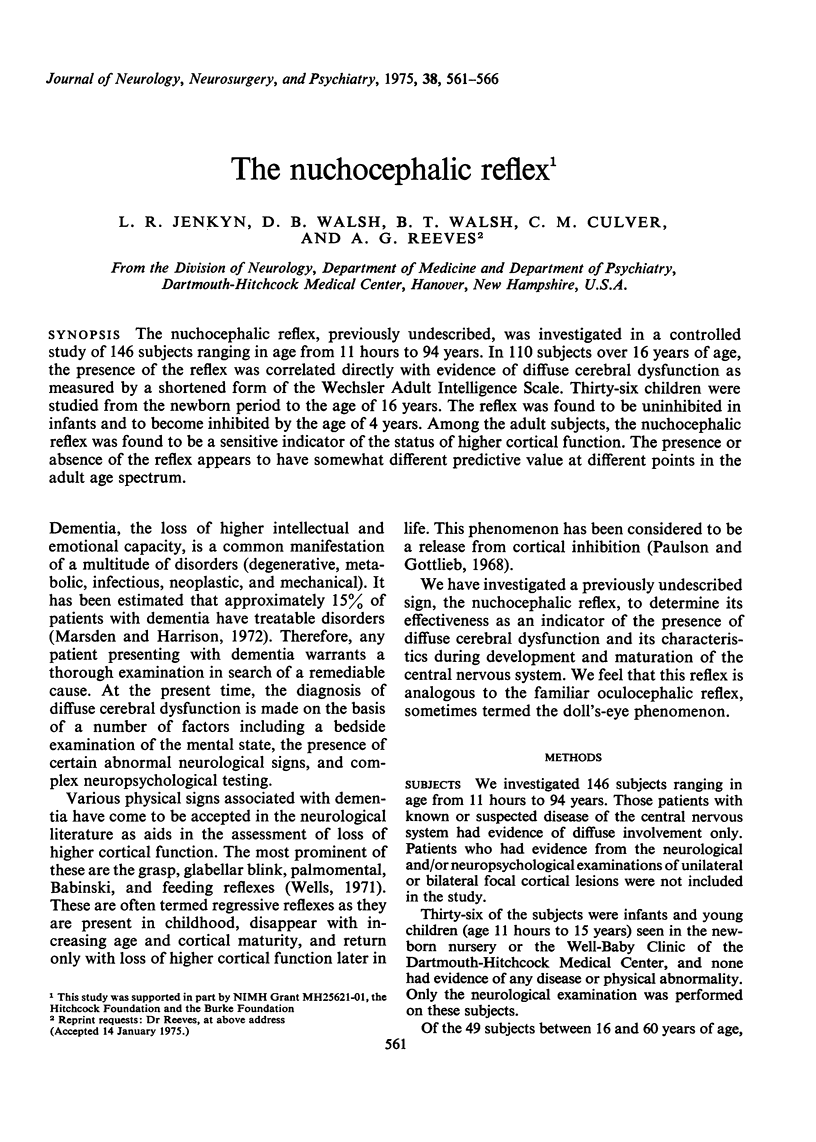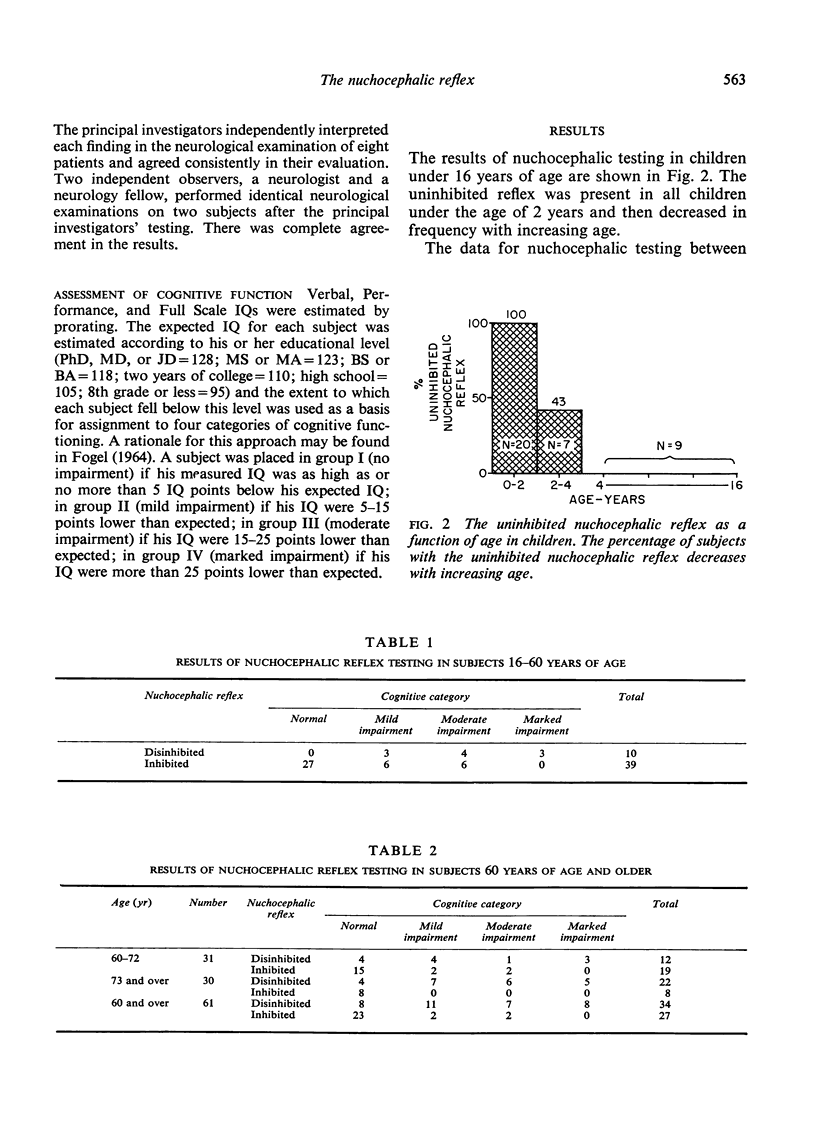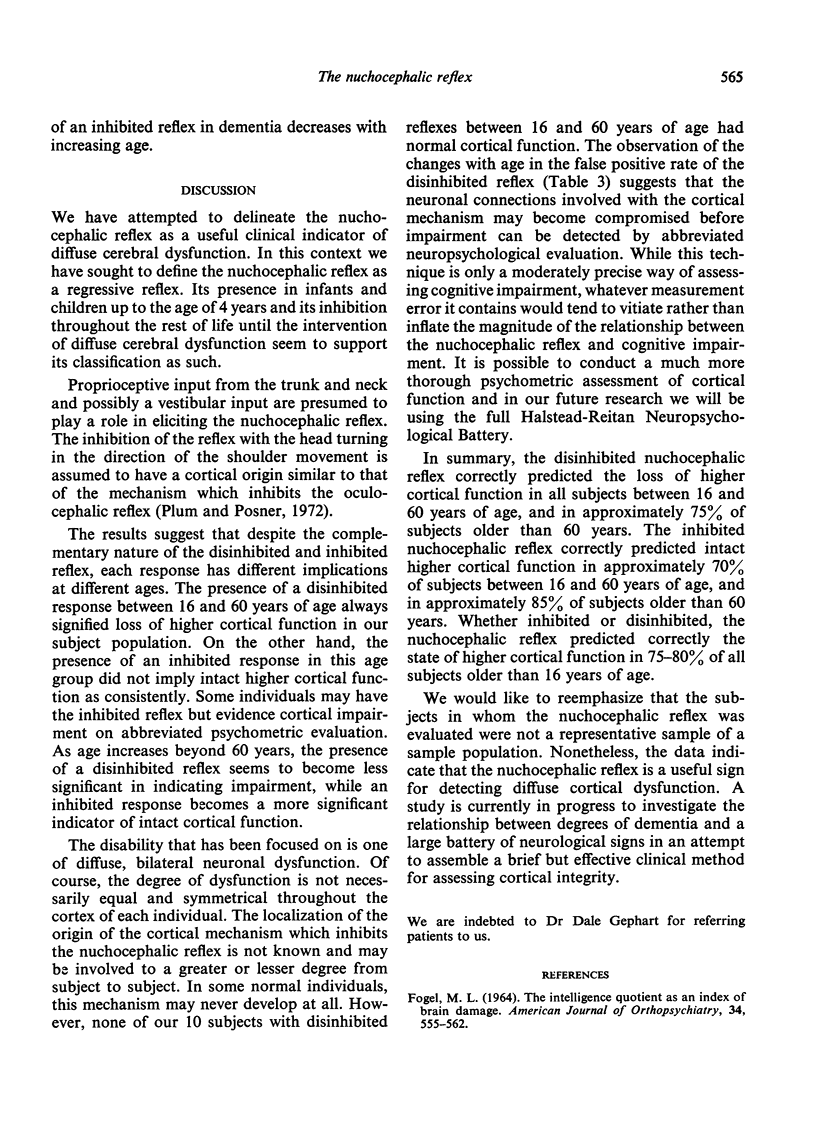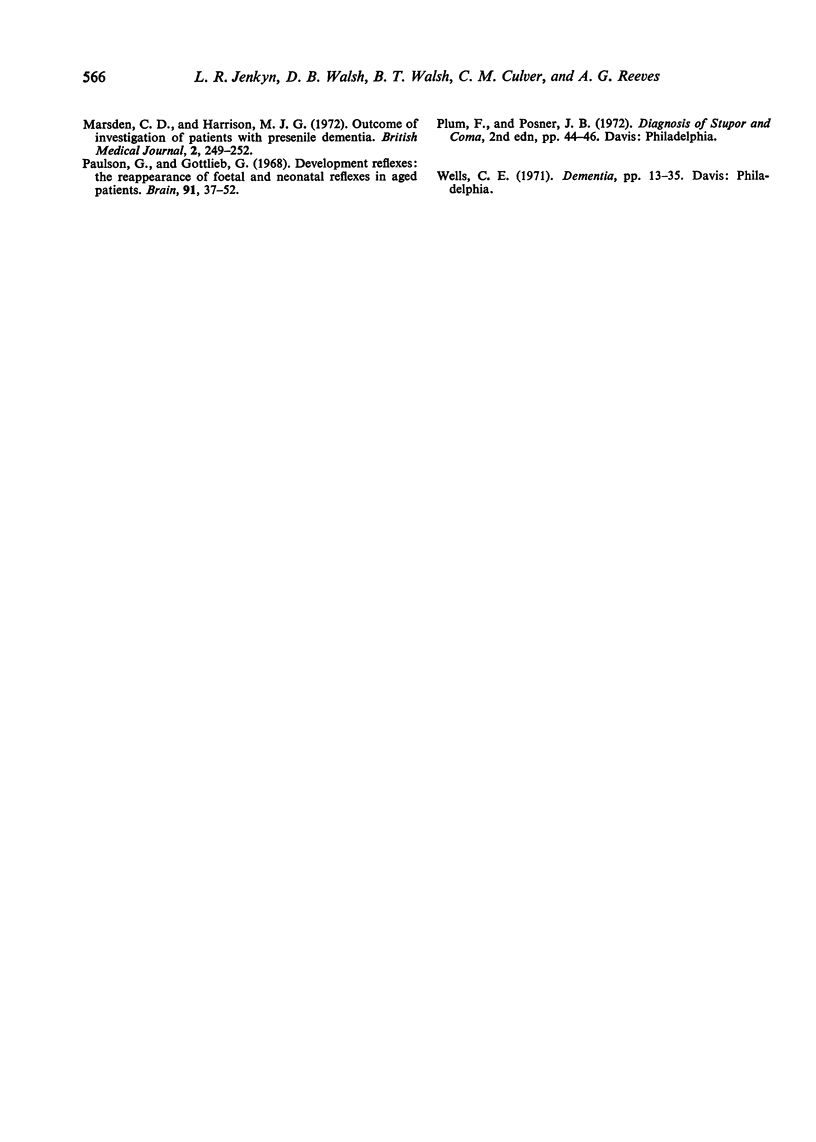Abstract
The nuchocephalic reflex, previously undescribed, was investigated in a controlled study of 146 subjects ranging in age from 11 hours to 94 years. In 110 subjects over 16 years of age, the presence of the reflex was correlated directly with evidence of diffuse cerebral dysfunction as measured by a shortened form of the Wechsler Adult Intelligence Scale. Thirty-six children were studied from the newborn period to the age of 16 years. The reflex was found to be uninhibited in infants and to become inhibited by the age of 4 years. Among the adult subjects, the nuchocephalic reflex was found to be sensitive indicator of the status of higher cortical function. The presence or absence of the reflex appears to have somewhat different predictive value at different points in the adult age spectrum.
Full text
PDF





Selected References
These references are in PubMed. This may not be the complete list of references from this article.
- FOGEL M. L. THE INTELLIGENCE QUOTIENT AS AN INDEX OF BRAIN DAMAGE. Am J Orthopsychiatry. 1964 Apr;34:555–562. doi: 10.1111/j.1939-0025.1964.tb02225.x. [DOI] [PubMed] [Google Scholar]
- Marsden C. D., Harrison M. J. Outcome of investigation of patients with presenile dementia. Br Med J. 1972 Apr 29;2(5808):249–252. doi: 10.1136/bmj.2.5808.249. [DOI] [PMC free article] [PubMed] [Google Scholar]


